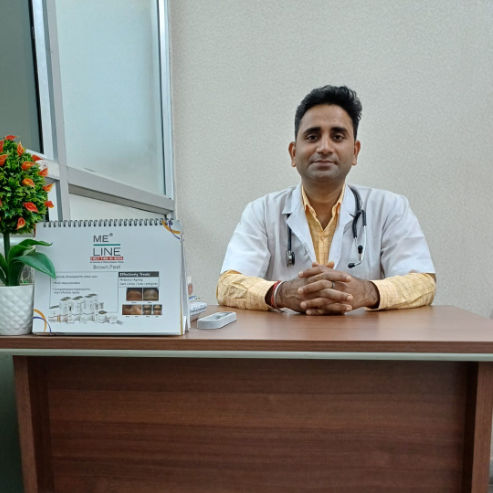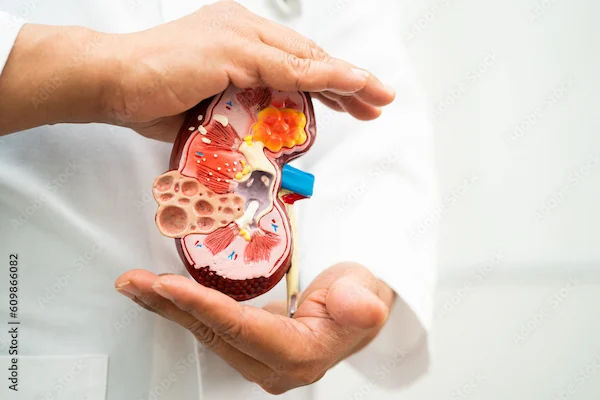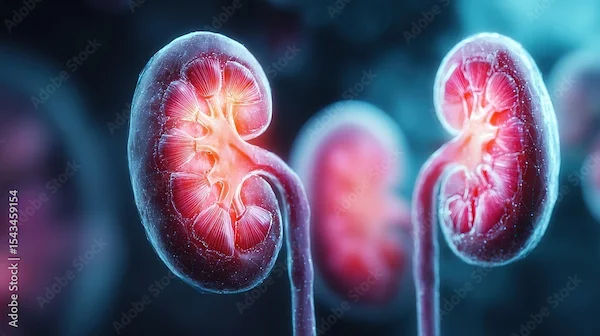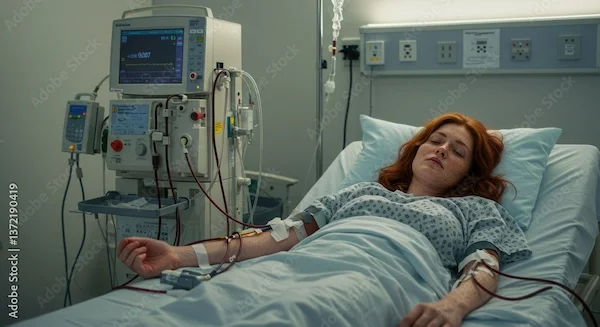Severe Leg Pain After Kidney Transplant: Know Why
Learn why severe leg pain after a kidney transplant may occur. Discover possible causes, warning signs, and when to seek medical help to ensure a safe and healthy recovery.

Written by
Last updated on 14th Jul, 2025
_3.webp)
Introduction
A kidney transplant is a life-saving procedure that can significantly improve the quality of life for patients with kidney failure. However, like any major surgery, it comes with potential side effects and complications. One such issue that some patients experience is severe leg pain after the transplant. If you or a loved one is dealing with this problem, know that you’re not alone. This article will help you understand why leg pain may occur after a kidney transplant, what you can do about it, and when to seek medical help.
Why Does Leg Pain Happen After a Kidney Transplant?
There are several possible reasons for severe leg pain after a kidney transplant. Some common causes include:
1. Nerve Damage (Neuropathy): During surgery, nerves near the transplant site (usually in the lower abdomen) can get stretched or compressed, leading to pain that radiates to the legs.
2. Medication Side Effects: Immunosuppressant drugs (like tacrolimus or cyclosporine) help prevent organ rejection but may cause muscle cramps, nerve pain, or bone weakness, contributing to leg discomfort.
3. Deep Vein Thrombosis (DVT – Blood Clot): After surgery, reduced mobility can increase the risk of blood clots in the legs, causing swelling, redness, and severe pain. This is a serious condition and needs immediate medical attention.
4. Muscle Weakness or Atrophy: Prolonged bed rest before or after surgery can weaken leg muscles, leading to pain when resuming normal activities.
5. Electrolyte Imbalance: Kidney transplant patients often have fluctuating levels of calcium, magnesium, or potassium, which can cause muscle cramps and pain.
6. Bone Disease (Osteoporosis or Osteonecrosis): Long-term kidney disease and certain medications (like steroids) can weaken bones, increasing the risk of fractures or joint pain.
Consult Top Specialists for Personalised Tips
Symptoms to Watch For
Not all leg pain is the same. Some signs that require urgent medical attention include:
Sudden, severe pain in one leg
Swelling, warmth, or redness (possible blood clot)
Numbness or tingling (nerve damage)
Difficulty walking or standing
Fever or chills (sign of infection)
If you experience any of these, contact your transplant team immediately.
How to Manage Leg Pain After Kidney Transplant?
Ways to manage leg pain after kidney transplant are:
1. Stay Active (But Don’t Overdo It)
Gentle walking helps improve circulation and prevents blood clots.
Avoid sitting or standing for too long.
2. Stretching & Physical Therapy
Simple stretches can ease muscle cramps.
A physiotherapist can guide you on safe exercises.
3. Hydration & Balanced Diet
Drink enough water to prevent cramps.
Eat foods rich in magnesium (nuts, bananas) and calcium (dairy, leafy greens).
4. Medication Adjustments
If pain is due to immunosuppressants, your doctor may adjust the dose or switch medications.
Pain relievers (like acetaminophen) may help, but avoid NSAIDs (ibuprofen) unless prescribed.
5. Compression Stockings
Helps prevent blood clots if you’re less mobile.
6. Regular Check-ups
Blood tests can detect electrolyte imbalances or bone issues early.
When to See a Doctor?
While mild pain may improve with rest and home care, seek medical help if:
Pain is severe and sudden
Leg is swollen, red, or warm (possible DVT)
You have fever or weakness
Pain doesn’t improve in a few days
Your transplant team can run tests (like ultrasound for clots or blood tests for electrolytes) and adjust treatment accordingly.
Conclusion
Severe leg pain after a kidney transplant can be worrying, but it’s often manageable with the right care. Staying active, eating well, and keeping in touch with your healthcare team can make a big difference. If you're experiencing persistent pain, don’t hesitate to reach out to your doctor. Apollo 24|7 offers expert consultations and lab tests to help monitor your post-transplant health. You can book an appointment easily online for personalised care.
Consult Top Nephrologist
Consult Top Specialists for Personalised Tips

Dr. Hareesha Babu K
Nephrologist
25 Years • MBBS, MD (General Medicine), DM (Nephrology),FASN, FRCP(Glasg), FRCP (Edin)
Bangalore
Kidney & Hypertension Care, Bangalore

Dr. S Bipin Kumar
Nephrologist
13 Years • MBBS, MD General Medicine, DM, Nephrology
Rajamahendravaram
SG KIDNEY CARE, Rajamahendravaram

Dr. Luvdeep Dogra
Nephrologist
10 Years • MBBS, MD, DM (NEPHORLOGY)
Jaipur
Dr Dogras Health Clinic, Jaipur

Dr. Govardhan Gupta
Nephrologist
15 Years • MBBS, DNB General Medicine, DrNB Nephrology
Mumbai
Oscar Superspeciality Hospital, Mumbai

Dr. Anantha Rao
Nephrologist
7 Years • MBBS, DNB (General Medicine), DNB (Nephrology)
Kurnool
Aakash hospital and KIMS hospital, Kurnool
Consult Top Nephrologist

Dr. Hareesha Babu K
Nephrologist
25 Years • MBBS, MD (General Medicine), DM (Nephrology),FASN, FRCP(Glasg), FRCP (Edin)
Bangalore
Kidney & Hypertension Care, Bangalore

Dr. S Bipin Kumar
Nephrologist
13 Years • MBBS, MD General Medicine, DM, Nephrology
Rajamahendravaram
SG KIDNEY CARE, Rajamahendravaram

Dr. Luvdeep Dogra
Nephrologist
10 Years • MBBS, MD, DM (NEPHORLOGY)
Jaipur
Dr Dogras Health Clinic, Jaipur

Dr. Govardhan Gupta
Nephrologist
15 Years • MBBS, DNB General Medicine, DrNB Nephrology
Mumbai
Oscar Superspeciality Hospital, Mumbai

Dr. Anantha Rao
Nephrologist
7 Years • MBBS, DNB (General Medicine), DNB (Nephrology)
Kurnool
Aakash hospital and KIMS hospital, Kurnool



_5.webp)
.webp)